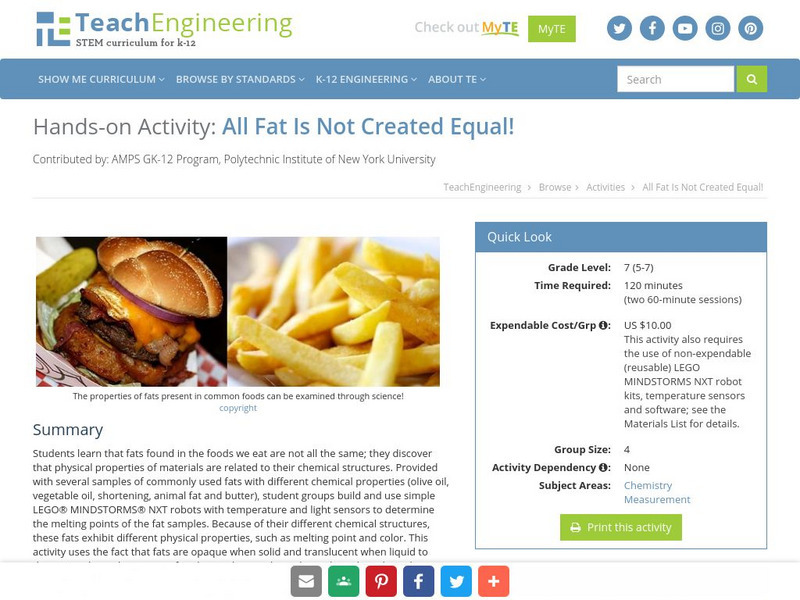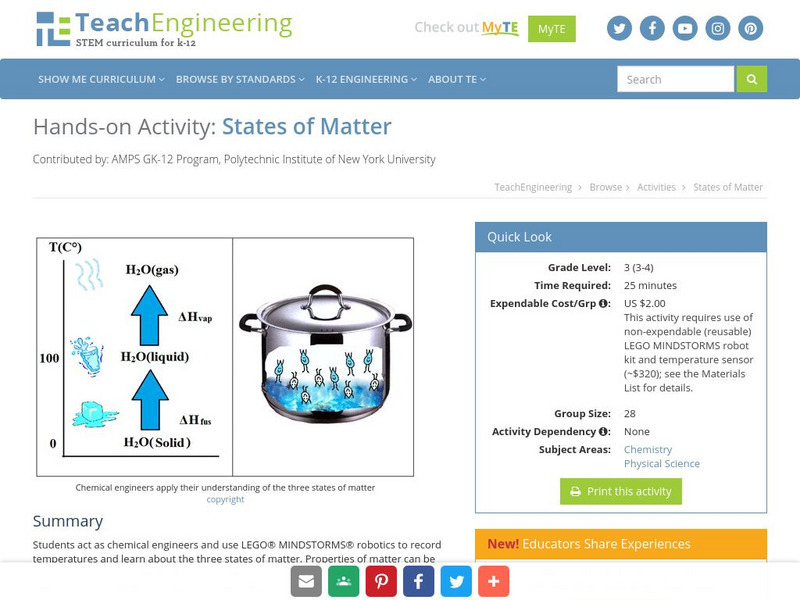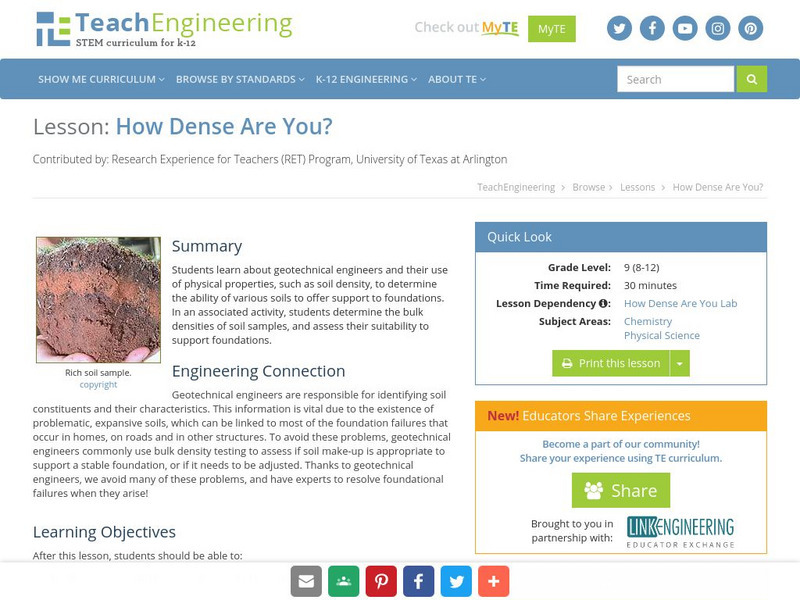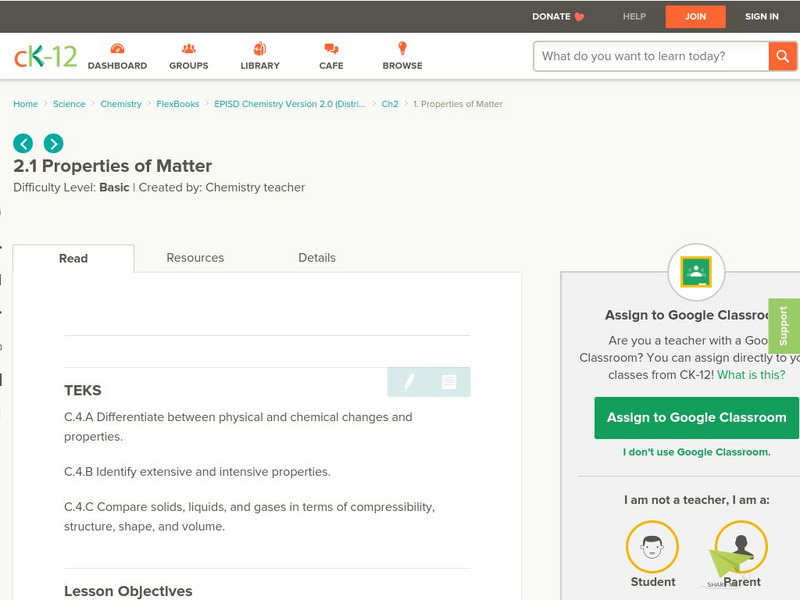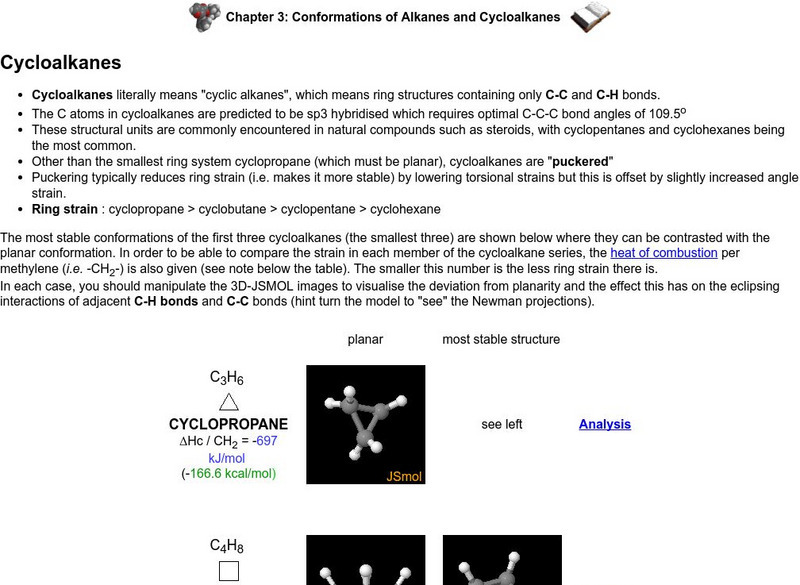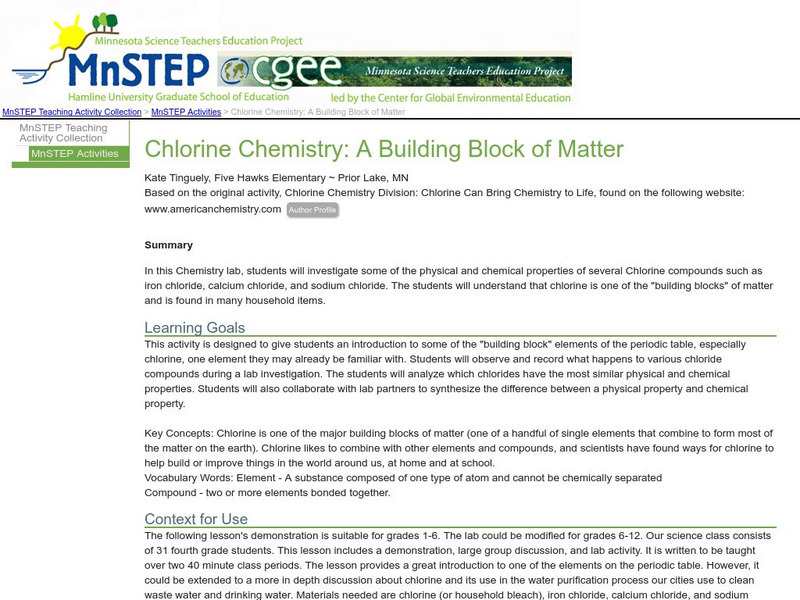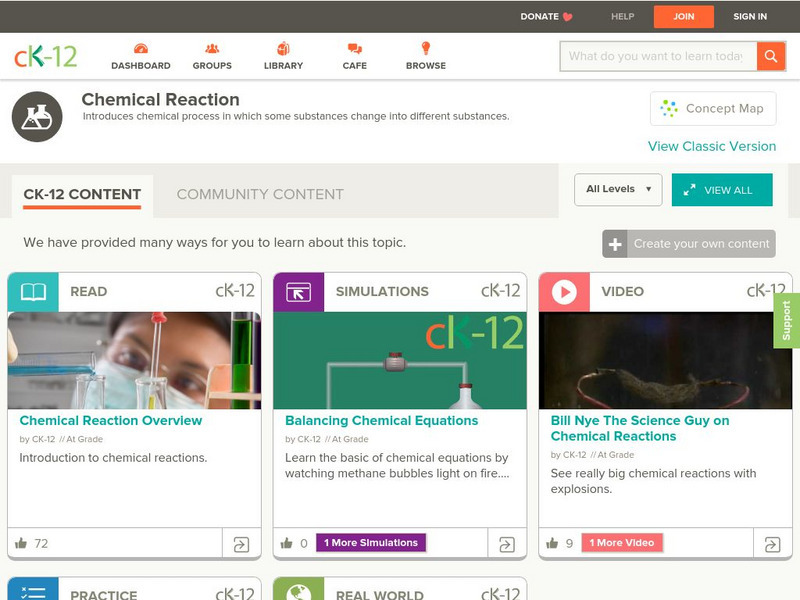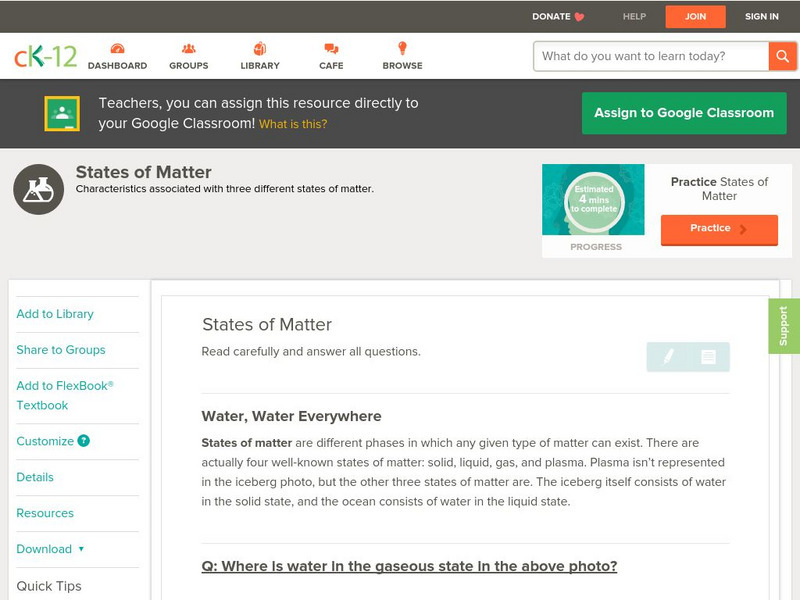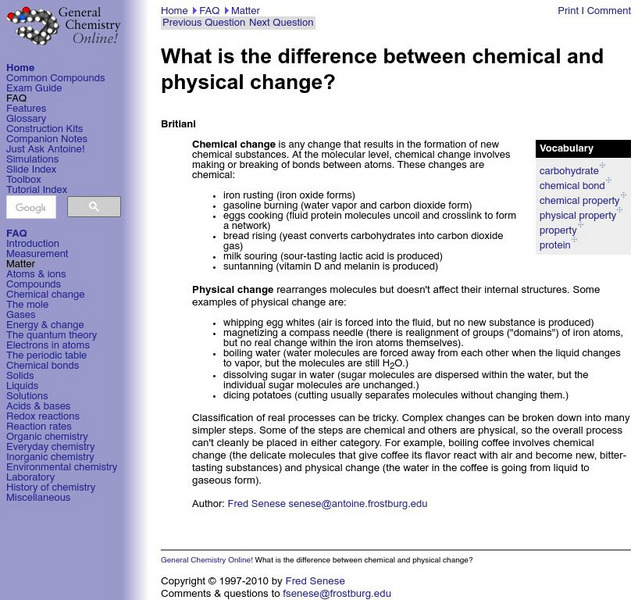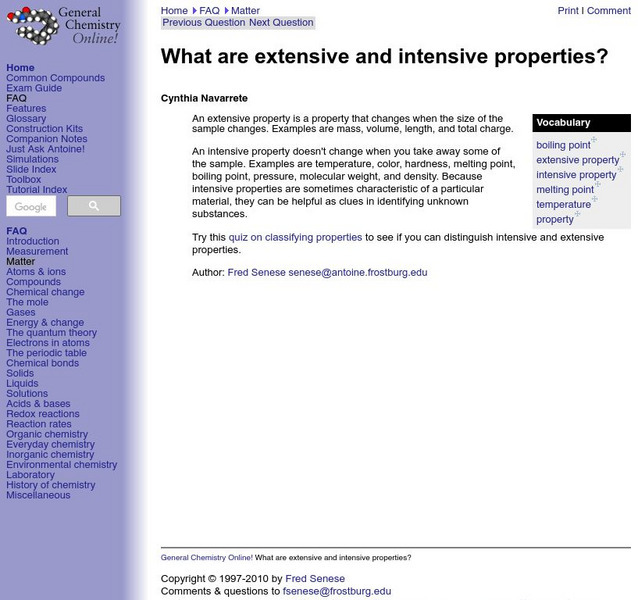Curated OER
WS 1.2 Metric Units I/ Physical vs. Chemical
In this metric units and properties worksheet, students determine the proper metric unit given a variety of measurements for specific items. They also identify chemical and physical properties and chemical and physical changes.
Curated OER
Properties
In this properties activity, students classify each of the properties given as either extensive or intensive and as either physical or chemical. This activity has 1 graphic organizer and 8 fill in the blank questions.
Curated OER
Matter and Change
Bright blue slides with yellow and white font make this presentation easy for learnerrs to read. The content is a brief overview of the commonly observed physical properties of matter, focusing on the differences among solids, liquids,...
Curated OER
A Matter of Density
For this density worksheet, students use different liquid densities to determine the order they would settle in if poured in a container together. Students review vocabulary terms associated with the density of matter. This worksheet has...
Curated OER
Comparing Properties of Elements & Compounds
In this elements and compounds worksheet, students review the physical properties of different compounds and elements using websites for information. This worksheet has 1 graphic organizer and 1 short answer question.
Curated OER
Outcomes Science 4
In this outcome science 4 worksheet, students apply scientific knowledge to answer and calculate a variety of questions. Students research the answer to several questions using the websites suggested.
Curated OER
Activity #9 Tye Green Blob
Students comprehend that a chemcial change produce substances with a different composition and physical and chemcial properties. They state the differences between physical and chemical changes. Pupils observe changes that occur during...
Curated OER
Mystery Powders
Learners describe the physical properties of polymers. In this chemistry instructional activity, students experiment on different polymer powders and identify each one of them. They record their observations and share them to class.
TeachEngineering
Teach Engineering: Measuring Viscosity
Students calculate the viscosity of various household fluids by measuring the amount of time it takes marble or steel balls to fall given distances through the liquids. They experience what viscosity means, and also practice using...
TeachEngineering
Teach Engineering: All Fat Is Not Created Equally!
Students learn that fats found in the foods we eat are not all the same; they discover that physical properties of materials are related to their chemical structures. Provided with several samples of commonly used fats with different...
TeachEngineering
Teach Engineering: States of Matter
Students act as chemical engineers and use LEGO MINDSTORMS NXT robotics to record temperatures and learn about the three states of matter. Properties of matter can be measured in various ways, including volume, mass, density and...
TeachEngineering
Teach Engineering: How Dense Are You?
Learners learn about geotechnical engineers and their use of physical properties, such as soil density, to determine the ability of various soils to offer support to foundations. In an associated activity, students determine the bulk...
CK-12 Foundation
Ck 12: Properties of Matter
[Free Registration/Login may be required to access all resource tools.] In this online tutorial, students will begin to understand a substance according to its physical properties. Learn to distinguish between extensive and intensive...
American Chemical Society
Middle School Chemistry: Lesson Plans: Using Chemical Change to Identify Unknown
Students observe reactions of liquids with different known powders in this lesson. Unknown powders are then identified using characteristic chemical changes.Site includes a procedure, teacher instructions, and video instruction.
American Chemical Society
Middle School Chemistry: What Is Density?
Calculate the density of cubes made of different materials to determine what type of material it contains. Using this information explain that the size, mass, and arrangement of the atoms or molecules of a substance determines its density.
University of Calgary
Univeristy of Calgary: Cycloalkanes
A brief description of cycloalkanes. Properties, chemical make-up, and structure provided. Brief introduction to nomenclature of cycloalkanes and generic formula. Interactive piece requires x-pdb plug-in.
Science Education Resource Center at Carleton College
Serc: Investigating Density: Determined by Using Mass and Volume of a Substance
In this activity, students investigate the history of density, its uses, and applications. Students will generate and calculate data applying it to a graph. They will be looking at the relationship between mass and volume.
Science Education Resource Center at Carleton College
Serc: Chlorine Chemistry: A Building Block of Matter
Students investigate physical and chemical properties of several chlorine compounds such as iron chloride, calcium chloride, and sodium chloride. The students will then discover that chlorine is one of the building blocks of matter and...
TeachEngineering
Teach Engineering: Understanding Elements
This lesson plan examines the properties of elements and the periodic table. Students learn the basic definition of an element and the 18 elements that build most of the matter in the universe. The periodic table is described as one...
CK-12 Foundation
Ck 12: Physical Science: Chemical Reaction Overview
[Free Registration/Login may be required to access all resource tools.] Explains chemical property and chemical reaction.
CK-12 Foundation
Ck 12: Chemistry: States of Matter
[Free Registration/Login may be required to access all resource tools.] Definition of state of matter and the three common states of matter and their differences.
Soft Schools
Soft Schools: Matter Properties Quiz
Take an interactive quiz over the properties of matter. After completing the quiz, check your score, and then revisit any incorrect question for further review
Frostburg State University
General Chemistry Online: Physical and Chemical Changes
Resource provides information about the difference between physical and chemical changes. Includes a definition and examples of each.
Frostburg State University
General Chemistry: Extensive and Intensive Properties
Provides information about extensive and intensive properties of matter. Gives examples of these properties. Includes a link to a quiz on classifying properties.











